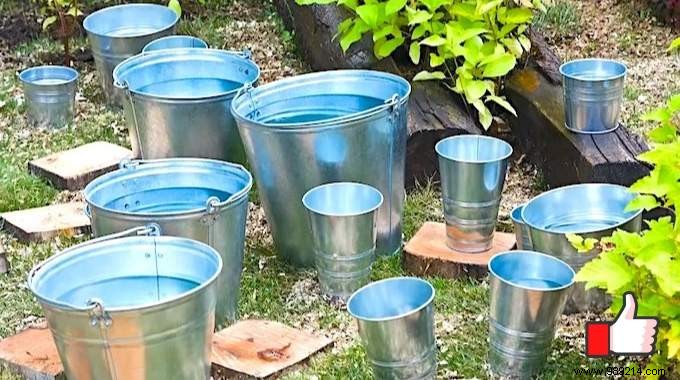
To have a beautiful garden, you need to water regularly.
But what to do when the rain is not abundant enough?
Or when it's too hot and the sun is beating down?
Fortunately, there are ingenious tricks to water your plants and crops without wasting drinking tap water.
You will be able to save a lot of water on your bill!
Here are 23 tips from gardeners to save tons of water in the garden :
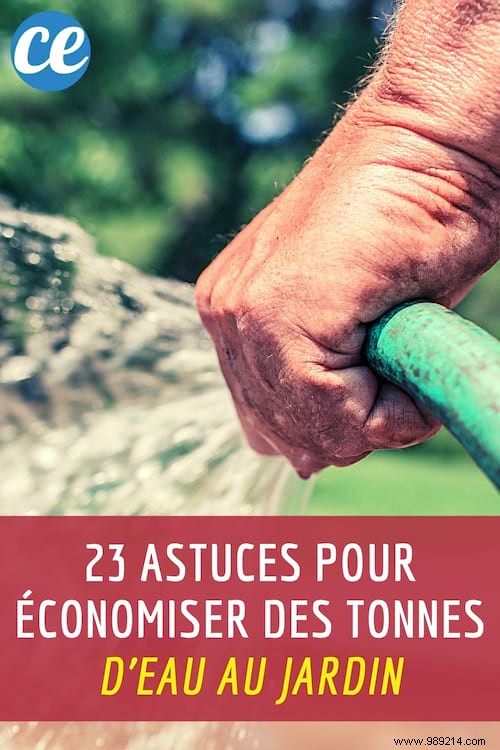
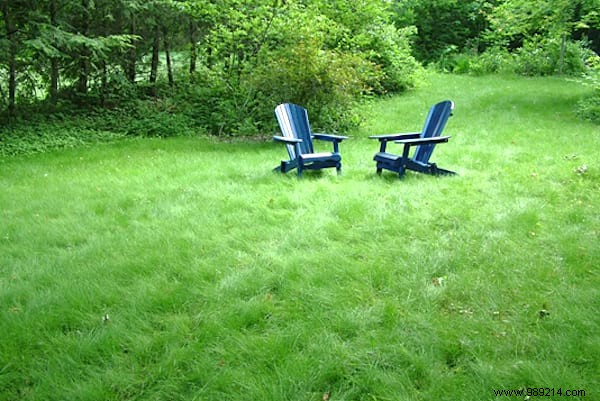
Lawn and turf are very water-intensive, especially in the dry season.
That's why you can opt for a lawn with clover.
Clover is hardier and less thirsty than grass. You just have to mow it shorter than the classic lawn.
If the summer is very hot, you can choose to "sacrifice" your lawn.
It will turn yellow, but it will start again in the fall with the return of the rains.
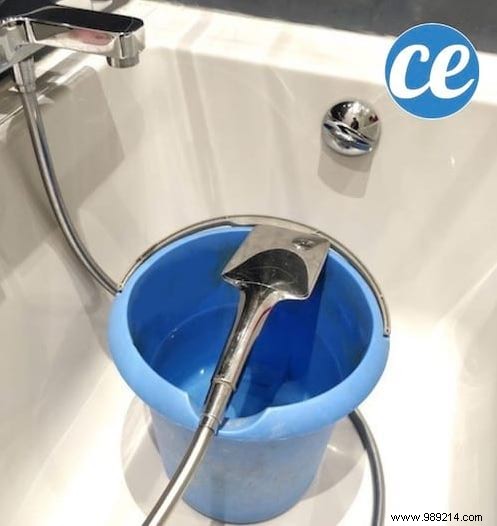
No more throwing away kitchen water, vegetable washing water, and even shower water to water the flowers on your patio or in your garden.
Did you put soap in the water?
It does not matter, this water can be used to wash the terrace, the gardening tools or the animal bowl.
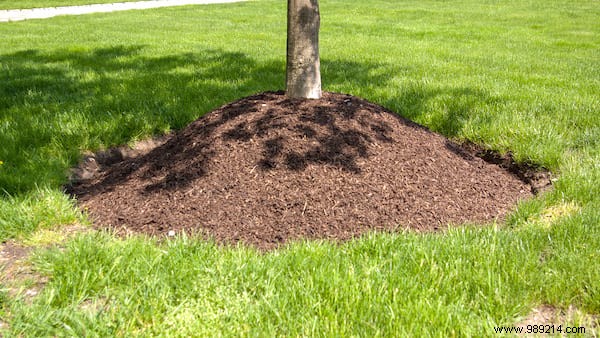
To keep the freshness of your plantations without watering, consider mulching in a thick layer of about 7 cm.
You can mulch with straw, pine bark, grass clippings, or other plant waste like ground cocoa, flax, homemade compost, and even unused sand.
The waterings are thus more spaced out and the weeds grow less quickly.

It is a kind of teat that is fixed on the neck of plastic bottles.
Once filled with water, they are turned upside down and planted in the ground. The water diffuses little by little.
You can go on vacation with peace of mind. Check out the trick here.
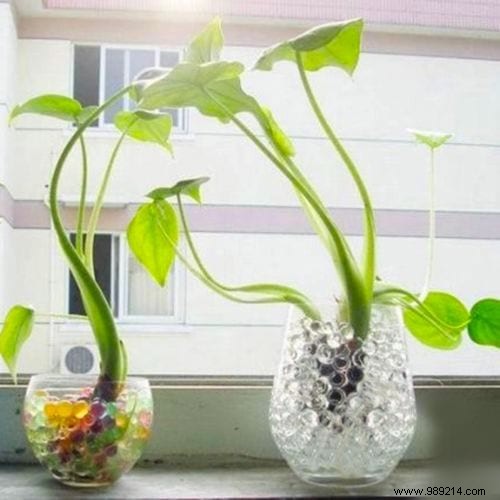
This technique is interesting for keeping water in the soil.
It comes in the form of a gel or gelatinous balls that are placed in the ground.
They swell with water and redistribute it in the dry earth, a bit like a sponge.
It's super practical especially for potted plants.
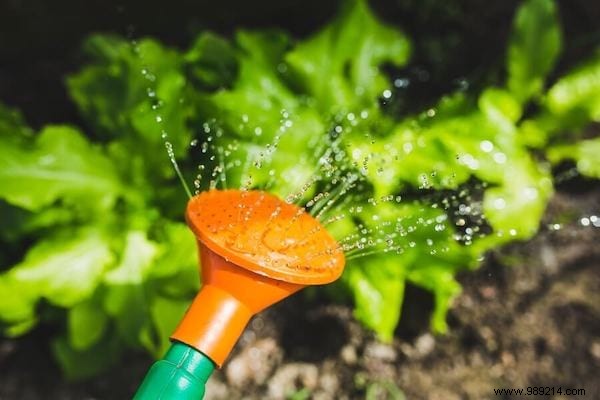
If you water in the morning or during the day, the water will evaporate faster with the sun, and even burn the leaves.
It is therefore much smarter to water in the evening to save water.
Why ? Because the water will penetrate quietly during the night and the sun is not there to dry it all up.
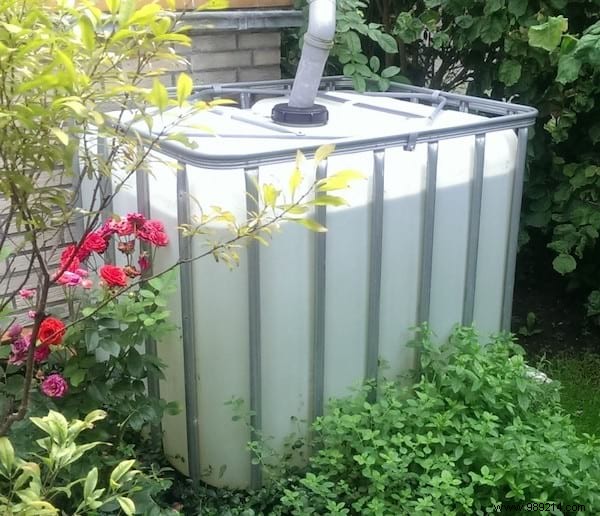
Rainwater is free! So why waste it when it falls from the sky?
To collect it for free, use a water collector.
You can use a system that sits on the gutters and empties into a large tank or an underground cistern.
With this system, you will never run out of water again. Check out the trick here.
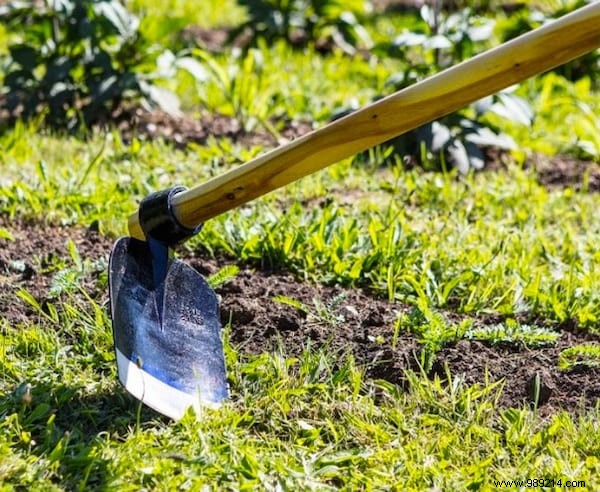
By stirring the soil regularly with a hoe, you avoid the formation of a crust that dries out the surface.
This prevents water loss, as it penetrates the soil much better.
My grandfather always said:"a hoeing is worth 2 waterings", and he was right! Check out the trick here.
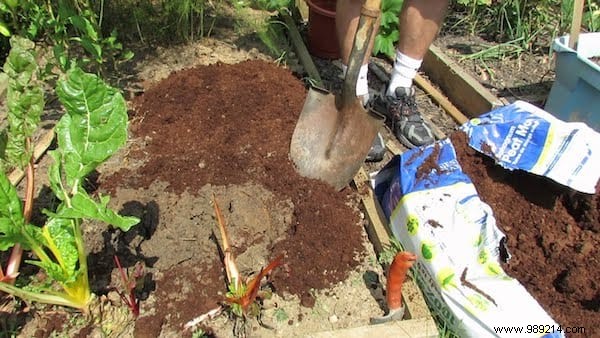
The richer the soil, the better it retains freshness and moisture.
To do this, add organic matter.
It can be compost for example...
...or peat which is like a natural sponge that retains water.
In both cases, the water will remain longer in the soil and there will be less need for watering.
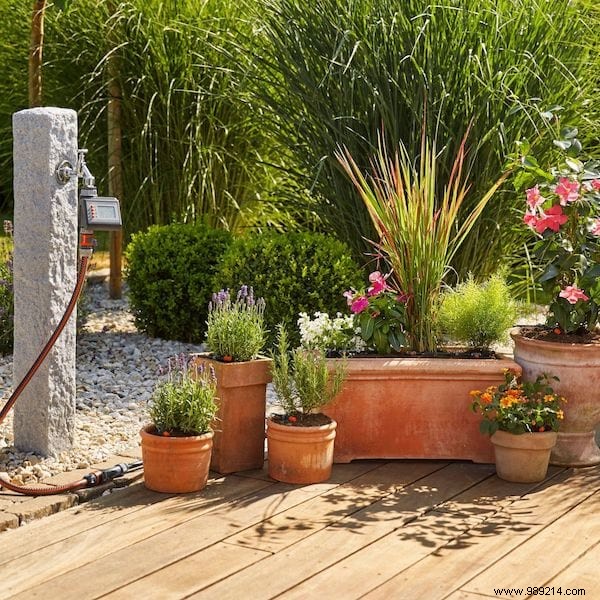
A plant in a pot that is too small will need to be watered more often...
Change the pot by choosing a larger flowerpot.
Why ? Because the water stays longer in a larger volume.
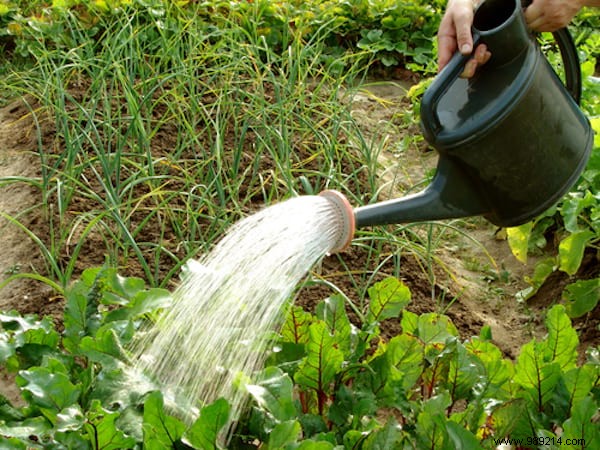
No need to water a little bit every day!
Better is effective watering every 4 or 5 days.
Thus, the soil will gradually make reserves in depth.
And the roots will fetch this water, where the soil is always fresh...
...instead of staying on the surface and getting thirsty too quickly.
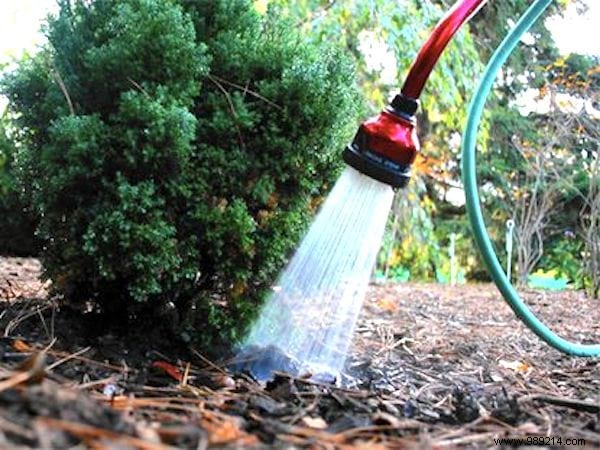
No need to water the leaves and 3 meters around the plant!
It is much more efficient and economical to water only the base of the plant.
The roots will thus go and draw what they need.
Also avoid watering the leaves of the plants. Why?
Because wet foliage is more easily prone to disease.
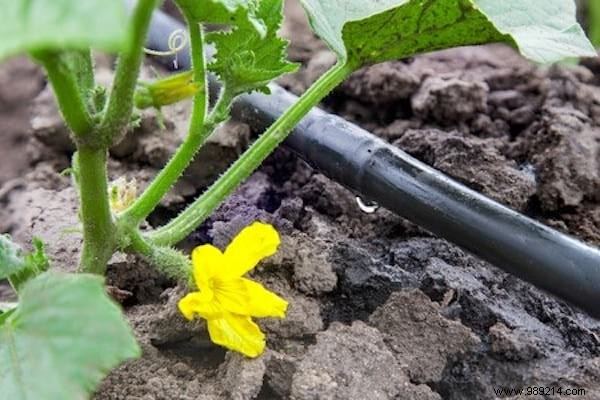
The drip system provides an ideal and regular supply of water.
Coupled with a timer, this allows you to deliver the right amount of water even when you are not there.
It's also perfect for plants that always need moisture.

Hanging or upright flower arrangements require much more water than those in pots.
In summer, they have to be watered sometimes up to twice a day!
If you live in a hot region, this type of decor should be avoided if you want to save water...
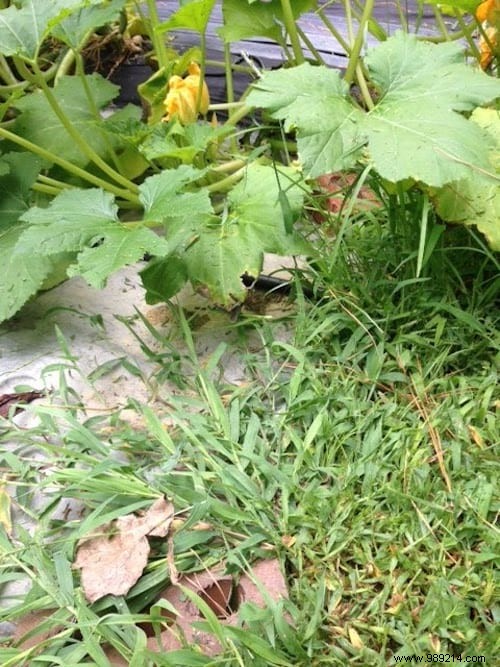
Weeds consume water for nothing!
And if you haven't mulched, weeds will quickly take over the land... and deplete your soil of water.
It is therefore essential to weed regularly to save water.
For this, pull the weeds by hand, or with a hoe, and use these weeds as natural mulch.
You kill two birds with one stone.
To discover: 7 Powerful and Easy-to-Make Weed Killer Recipes.
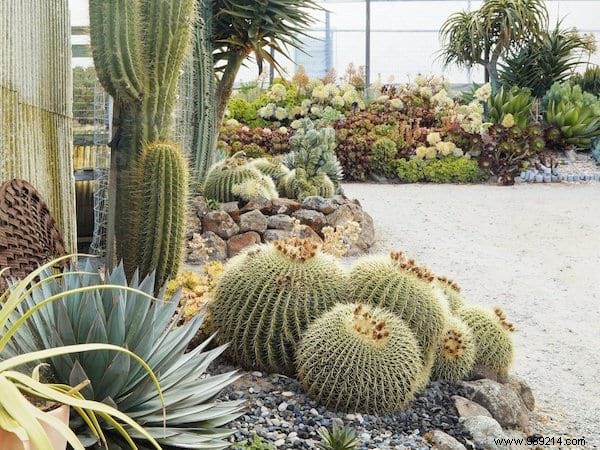
Is it worth planting a moisture-loving plant if you live in an area with very dry soil?
Probably not!
So choose local varieties that are adapted to your climatic conditions.
This avoids wasting water by watering too often.
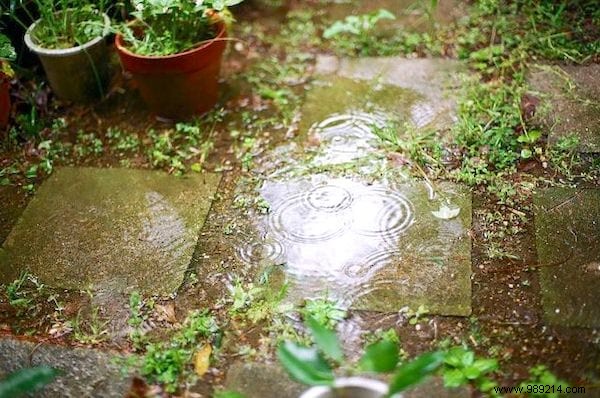
No need to water if the rain comes within hours or the next day!
It would still be silly to spend liters of water for nothing, wouldn't it?
So, before watering your plants or your vegetable garden, remember to take a look at the local weather forecast to find out if it's going to rain.
If a downpour is expected in the next few hours or the next day, let nature take its course.
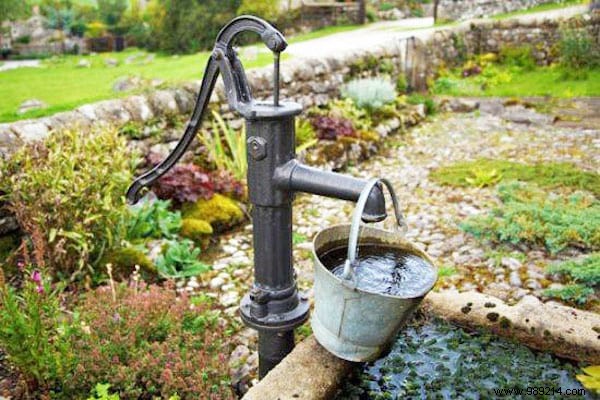
If you have a well, use this water rather than city water.
It may be worth investing in a pump to collect the water at the bottom of the well.
The other idea is to call a dowser.
It will help you find an underground source on your land.
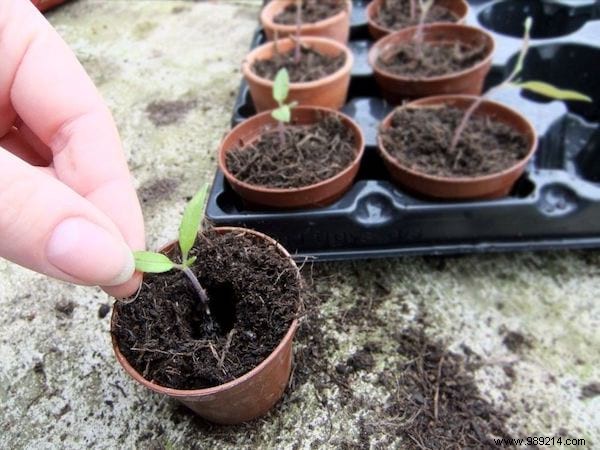
When planting large plants, you can choose to sacrifice some of their foliage.
Same for flower buds and buds.
Why do that ? Because the plant will take root better in the ground without being too greedy in water.
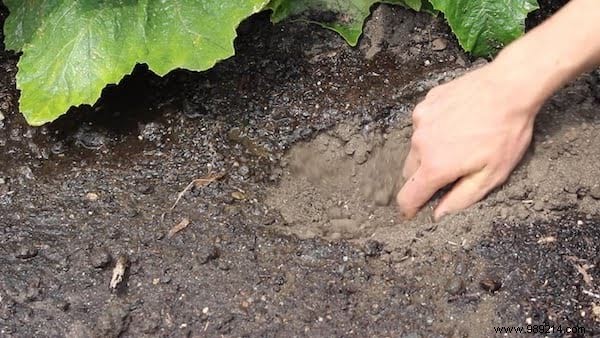
Before watering, dig the soil 20 or 30 cm deep.
If the soil is still moist or fresh, watering is obviously not necessary.
You can also equip your automatic watering system with a sensor.
In this way, your automatic watering only starts if the ground is dry in depth.
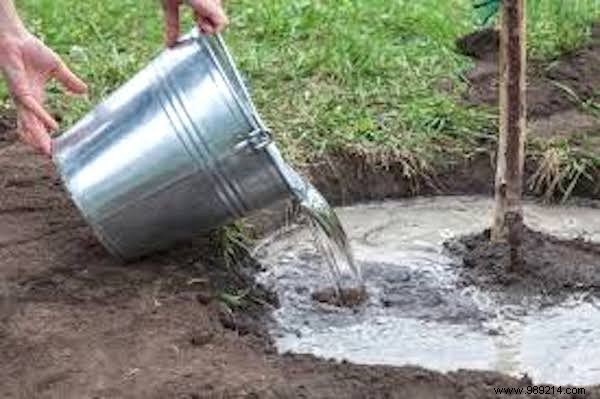
Dig a small basin with the soil at the base of the plants to retain the water.
This is a very useful technique in the vegetable garden on tomatoes, zucchini or cucumbers for example.
For your vegetable garden, there is also another super effective technique to better retain water.
The trick is to dig small furrows that will circulate the water between your vegetable plants.
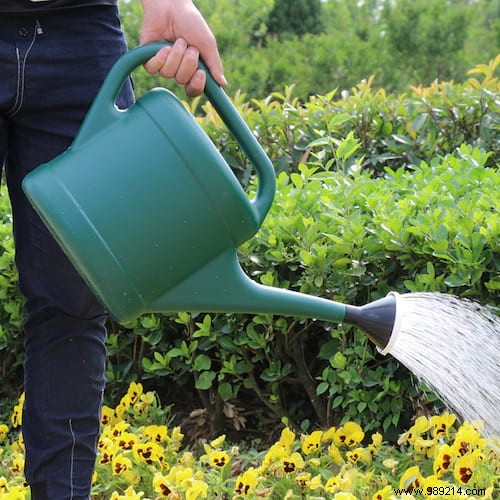
For better water penetration, consider watering in two stages.
First at the foot of the plant. By the time you water the others, the water will penetrate by wetting the soil.
The second passage will allow the water to enter deeper into the soil, where the roots are.
This trick takes longer, but it's much more economical in water.
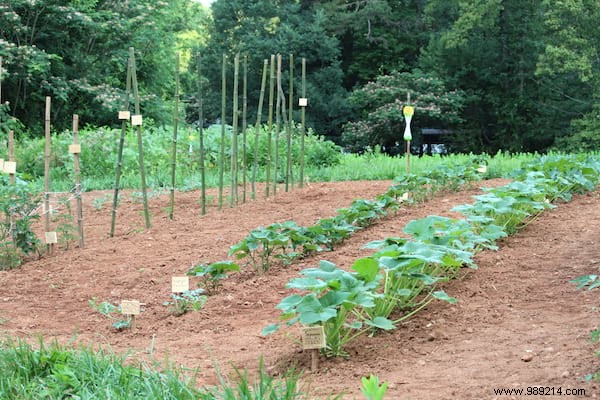
If you can, avoid placing your vegetable garden on a mound. Why?
Because the water will flow lower without staying close to the plant.
Opt instead for a vegetable garden in a slight depression.